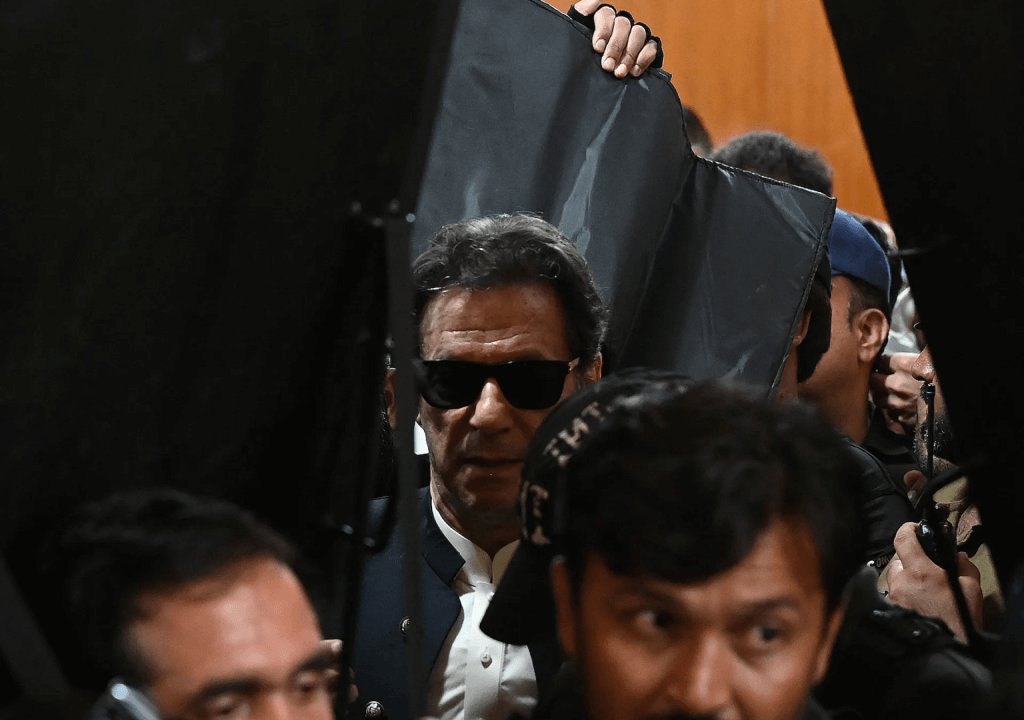Pakistan, a country formed for South Asian Muslims by the British, is facing a deep existential crisis. The people are beginning to rise against the miserable conditions imposed by the ruling power bloc, a wealthy elite that has controlled the state for decades. While this elite thrives, the general population suffers immensely due to economic collapse. This power bloc, composed of the military, British-linked politicians, and Islamic clerics, has shaped Pakistan and led it through its turbulent 74-year history. Now, however, the public seems fed up with this system and has begun to push back on a large scale, posing a significant threat not only to this entrenched elite but to Pakistan itself.
The ongoing clashes between the public and the elite began when the ousted, outspoken Prime Minister Imran Khan decided to challenge the establishment as a representative of the people. Though he, too, is a product of the same elite, his emergence as a figurehead against the ruling bloc has escalated the conflict to new heights. Now, the imprisoned former prime minister has become a national symbol of revolution. Pakistan’s military and police are intensifying their crackdown on Imran Khan, his party, and their supporters, using anti-terrorism laws in a determined bid to quash dissent.
Protesters and authorities have clashed repeatedly across the state. Over the weekend, hundreds of riot police deployed tear gas and baton charges as supporters of Imran Khan’s Pakistan Tehreek-e-Insaf (PTI) gathered in Islamabad and Lahore. Dozens of PTI members, including prominent leaders and lawyers, were arrested, with hundreds more, including Khan, facing charges under terrorism laws.
Khan, 72, has been incarcerated since August 2023, facing over 100 charges of corruption and terrorism, which he claims are politically motivated, following his decision to confront the authorities. He has been forcibly sidelined from mainstream politics, and his party was banned from participating in the last general election, paving the way for the return of the elite to parliament. However, public support for Khan remains evident, as many party-backed candidates who ran as independents were elected.
Pakistani authorities have also decided to take a more aggressive stance against groups that may challenge their authority, beyond just PTI. There have been mass arrests and a ban on the Pashtun Tahafuz Movement (PTM), an organization advocating for the rights of Pakistan’s ethnic Pashtun community, an inter-state group also prominent in Afghanistan, under terrorism laws.
The announcement came suddenly on Sunday night, when the interior ministry imposed the ban on PTM, which has long criticized Pakistan’s powerful military establishment for its role in abuses and enforced disappearances in Pashtun-dominated areas of Khyber Pakhtunkhwa and Balochistan. Recently, PTM had begun mobilizing large numbers and was planning a historic three-day national gathering in Khyber Pakhtunkhwa this week. The gathering was intended as a response to the worsening security situation, an increase in militant attacks, and abuses committed by the military against Pashtuns. In a rare show of unity, PTI and other opposition parties had agreed to join the event.
The Pakistani government, widely seen as a proxy for the military, is increasingly adopting an iron-fisted approach to suppress opposition, even as it struggles with growing economic and security crises. The military fears rising dissent from Khyber Pakhtunkhwa, Balochistan, and Kashmir could lead to separatism. Militant attacks have continued to escalate in Pakistan’s border areas following the Taliban’s takeover of neighboring Afghanistan, with little sign of improvement in the security situation. Nearly 1,000 people have been killed in militant attacks and counter-terrorism operations in the past three months alone, most of them in Khyber Pakhtunkhwa and Balochistan.
While senior figures in the ruling PML-N and the military have repeatedly blamed Imran Khan and PTI for the country’s challenges, the reality is that Pakistan is facing an existential crisis, with the public growing increasingly disillusioned with the administration. Calls for Islamic solidarity and anti-India sentiment are unlikely to resolve the country’s deepening problems.








